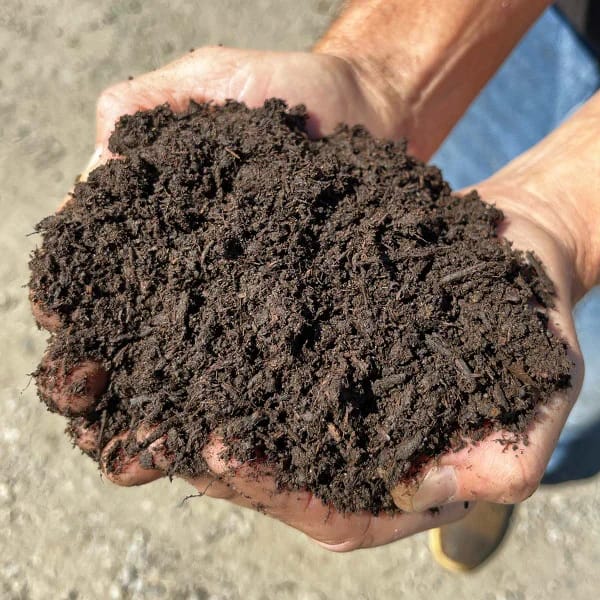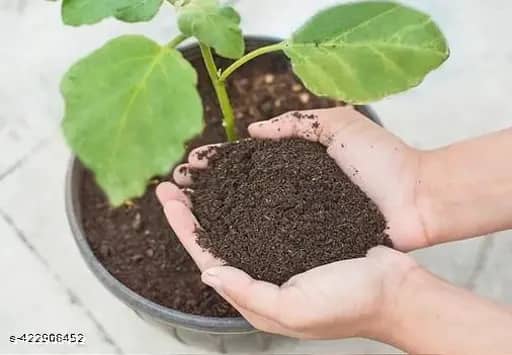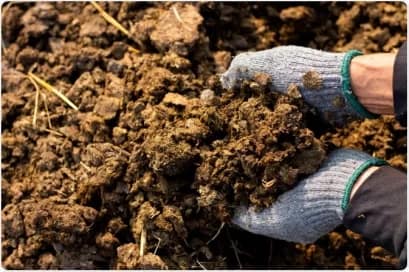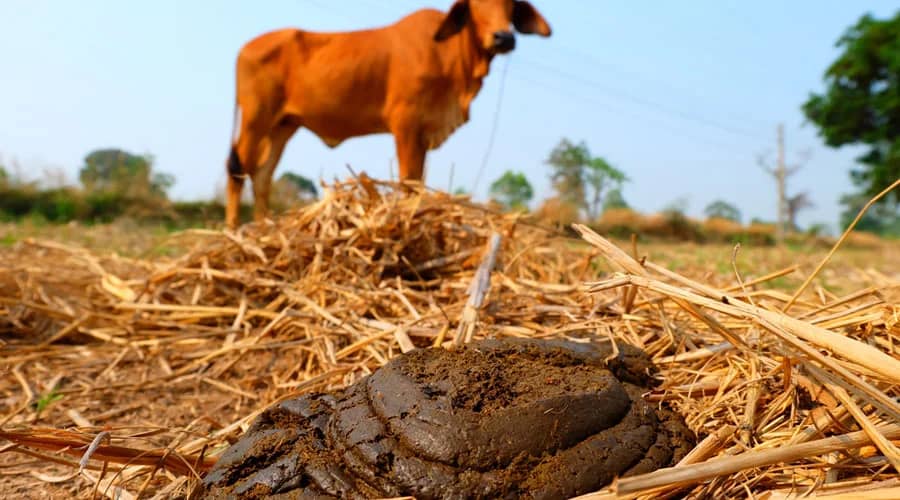Discover how cow dung can revolutionize your indoor gardening. Learn about its benefits, application methods, and why it’s a game-changer for plant health and growth.
Here are some synonyms and alternative phrases for “cow dung”:
- Manure
- Animal waste
- Cow manure
- Livestock excrement
- Bovine manure
- Cattle droppings
- Organic fertilizer
- Compostable waste
- Cow pats
- Natural fertilizer
Table of Contents
| Introduction to Cow Dung for Indoor Plantation | Importance, Overview |
| Understanding Cow Dung | Composition, Nutrient Content |
| Benefits of Cow Dung for Indoor Plants | Soil Enrichment, Nutrient Supply, Pest Control |
| How to Use Cow Dung in Indoor Gardening | Application Methods, Dosage, Precautions |
| Types of Cow Dung Products | Fresh, Composted, Vermicompost |
| Preparing Cow Dung for Indoor Use | Composting Process, Safety Measures |
| Application Techniques | Mixing with Soil, Making Cow Dung Tea |
| Nutrient Profile of Cow Dung | Key Nutrients, Microbial Benefits |
| Comparing Cow Dung with Other Organic Fertilizers | Benefits, Drawbacks |
| Cow Dung as a Soil Conditioner | Improving Soil Structure, Moisture Retention |
| Eco-Friendly Aspects of Using Cow Dung | Sustainability, Environmental Impact |
| Common Myths About Cow Dung in Gardening | Debunking Misconceptions |
| Potential Challenges and Solutions | Odor Management, Indoor Use Precautions |
| Success Stories | Case Studies, User Experiences |
| Innovative Uses of Cow Dung | Beyond Fertilizer, Creative Applications |
| FAQs about Cow Dung for Indoor Plantation | Common Questions, Expert Answers |
Introduction to Cow Dung for Indoor Plantation
Importance
Indoor gardening has become increasingly popular as people seek to bring nature into their homes. Manure, a traditional and highly effective organic fertilizer, plays a vital role in enhancing plant growth and soil health. This guide explores the myriad benefits and practical applications of manure for indoor plants.
Overview
Using manure in indoor plantations offers a natural way to boost plant health and productivity. This organic matter is rich in essential nutrients, promoting robust growth and resilience in a variety of plants. By understanding how to properly utilize manure, indoor gardeners can create thriving, sustainable ecosystems in their homes.
Understanding Manure
Composition
Manure is a mixture of digested grass and grain, which passes through the animal’s digestive system. It contains a balanced array of nutrients, including nitrogen, phosphorus, potassium, and a host of micronutrients. Additionally, it is packed with beneficial microorganisms that aid in decomposing organic matter and enriching the soil.
Nutrient Content
The nutrient profile of manure makes it an excellent fertilizer. Typically, it contains about 3% nitrogen, 2% phosphorus, and 1% potassium, along with trace elements like calcium, magnesium, and sulfur. These nutrients are essential for plant growth and development, making manure a comprehensive soil amendment.

Benefits of Manure for Indoor Plants
Soil Enrichment
Manure improves soil structure, increasing its ability to retain water and nutrients. This enrichment is crucial for indoor plants, which often suffer from limited soil volume and nutrient depletion.
Nutrient Supply
The slow-release nature of manure provides a steady supply of nutrients to our plants. This helps maintain consistent growth and prevents nutrient burn, a common issue with synthetic fertilizers.
Pest Control
Manure contains natural compounds that can deter pests and pathogens. Its microbial content fosters a healthy soil ecosystem, which can inhibit harmful organisms.
Using Manure in Indoor Gardening
Application Methods
Manure can be applied directly to the soil or used to make a nutrient-rich liquid known as manure tea. Both methods are effective, but each has its own set of best practices to follow.
Dosage
To apply directly to the soil, thoroughly mix manure into the potting mix at a ratio of 1:5 (one part manure to five parts soil). For manure tea, dilute one part manure with ten parts water and let it steep for 2-3 days before using it to water plants.
Precautions
While manure is beneficial, it’s essential to use it correctly to avoid potential issues such as odor or the introduction of pathogens. Always ensure the manure is well-composted or treated before use, especially for indoor plants.
Types of Manure Products
Fresh
Fresh manure is the raw form, straight from the source. It is rich in nutrients but can be too strong for direct application to plants due to its high ammonia content.
Composted
Composted manure has been broken down over time, making it safer and more effective for plant use. This form is ideal for enriching soil without the risk of burning plant roots.
Vermicompost
Vermicompost involves using worms to further break down manure, resulting in a highly refined, nutrient-rich product. This type is particularly beneficial for delicate indoor plants.

Preparing Cow Dung for Indoor Use
Composting Process
To compost manure, pile it in a well-ventilated area, regularly turning it to ensure even decomposition. This process takes several months but results in a stable, odor-free fertilizer.
Safety Measures
Ensure that the dung is thoroughly composted to kill any pathogens. To maintain hygiene, wear gloves when handling manure and wash your hands afterward.
Application Techniques
Mixing with Soil
Mixing manure with potting soil improves its structure and nutrient content. This method is excellent for repotting plants or preparing new plant beds.
Making Manure Tea
Manure tea, a liquid fertilizer created by steeping dung in water, can be applied directly to the soil or used as a foliar spray to provide an immediate nutrient boost.
Nutrient Profile of Manure
Key Nutrients
Manure is rich in nitrogen, phosphorus, and potassium—key nutrients that support various plant functions, from root development to flowering.
Microbial Benefits
The microbial content in manure helps break down organic matter in the soil, making nutrients more accessible to plants. This microbial activity also improves soil health and fertility.
Comparing Manure with Other Organic Fertilizers
Benefits
Compared to other organic fertilizers, manure is cost-effective and widely available. Its balanced nutrient content and soil conditioning properties make it a superior choice for many gardeners.
Drawbacks
However, it can be labor-intensive to prepare and may have an initial odor. Proper composting and application techniques can mitigate these drawbacks.
Manure as a Soil Conditioner
Improving Soil Structure
Manure enhances soil aeration and drainage, creating an optimal environment for root growth. It also aids in moisture retention, reducing the need for frequent watering.
Moisture Retention
The organic matter in manure increases the soil’s capacity to hold water, ensuring that plants receive consistent hydration.
Eco-Friendly Aspects of Using Manure
Sustainability
Using manure recycles agricultural waste, reducing environmental impact. It is a renewable resource that supports sustainable farming and gardening practices.
Environmental Impact
Manure enriches the soil without the harmful effects associated with chemical fertilizers, such as soil degradation and water pollution.
Common Myths About Manure in Gardening
Debunking Misconceptions
Some myths suggest that manure is too strong for indoor plants or that it smells bad. When properly composted and applied, manure is safe, effective, and odor-free.
Potential Challenges and Solutions
Odor Management
While fresh manure can be odorous, composted manure has little to no smell. Proper ventilation and composting can effectively manage any initial odors.
Indoor Use Precautions
Ensure that manure is fully composted before using it indoors to prevent the introduction of pathogens and pests. Regularly monitor plant health to catch any issues early.
Success Stories
Case Studies
Many indoor gardeners have successfully used manure to enhance their plants’ growth and vitality. These case studies highlight the practical benefits and ease of use of manure in various indoor gardening scenarios.
User Experiences
Gardeners who use manure often report healthier plants, improved flowering, and fewer pest issues. Their positive experiences underscore the effectiveness of this natural fertilizer.
Innovative Uses of Manure
Beyond Fertilizer
Manure can be used to make biodegradable pots, pest repellents, and even as a renewable energy source. Its versatility extends beyond traditional gardening applications.
Creative Applications
Innovative gardeners have found unique ways to incorporate manure into their gardening routines, from homemade fertilizers to sustainable garden structures.
FAQs about Manure for Indoor Plantation
Is manure safe for all indoor plants?
Yes, when properly composted, manure is safe for most indoor plants.
How often should I apply manure to my indoor plants?
Apply manure or manure tea every 4-6 weeks during the growing season.
Can fresh manure be used directly on plants?
It’s best to compost fresh manure before use to avoid burning plant roots.
Does manure have a strong smell?
Composted manure has little to no odor, making it suitable for indoor use.
What is manure tea, and how do I make it?
Manure tea is a liquid fertilizer created by soaking manure in water. Mix one part manure with ten parts water and let it steep for 2-3 days.
Can manure help with pest control?
Yes, manure contains natural compounds that can deter pests and pathogens.

cow dung for plants, cow dung fertilizer, benefits of cow dung, cow manure for plants, cow dung compost, how to use cow dung, cow dung for indoor plants, organic fertilizer, cow dung nutrients, natural fertilizer, cow dung gardening, cow dung uses, cow dung soil, cow dung application, cow dung organic farming, composting cow dung, cow dung tea, cow dung benefits, cow manure compost, cow dung for vegetables, cow dung soil conditioner, cow dung mulch, cow dung for flowers, cow dung potting mix, cow dung plant growth, cow dung preparation, cow dung sustainability, cow dung microbial content, cow dung for garden, cow dung and plant health, cow dung and soil fertility, cow dung vs synthetic fertilizer, cow dung eco-friendly, cow dung and pest control, cow dung and moisture retention, fresh cow dung, composted cow dung, vermicompost cow dung, cow dung safety, cow dung nutrient profile, cow dung organic matter, cow dung for houseplants, cow dung for herbs, cow dung soil enrichment, cow dung odor management, cow dung environmental impact, cow dung tea preparation, cow dung in container gardening.manure, animal waste, cow manure, livestock excrement, bovine manure, cattle droppings, organic fertilizer, compostable waste, cow pats, natural fertilizer.

